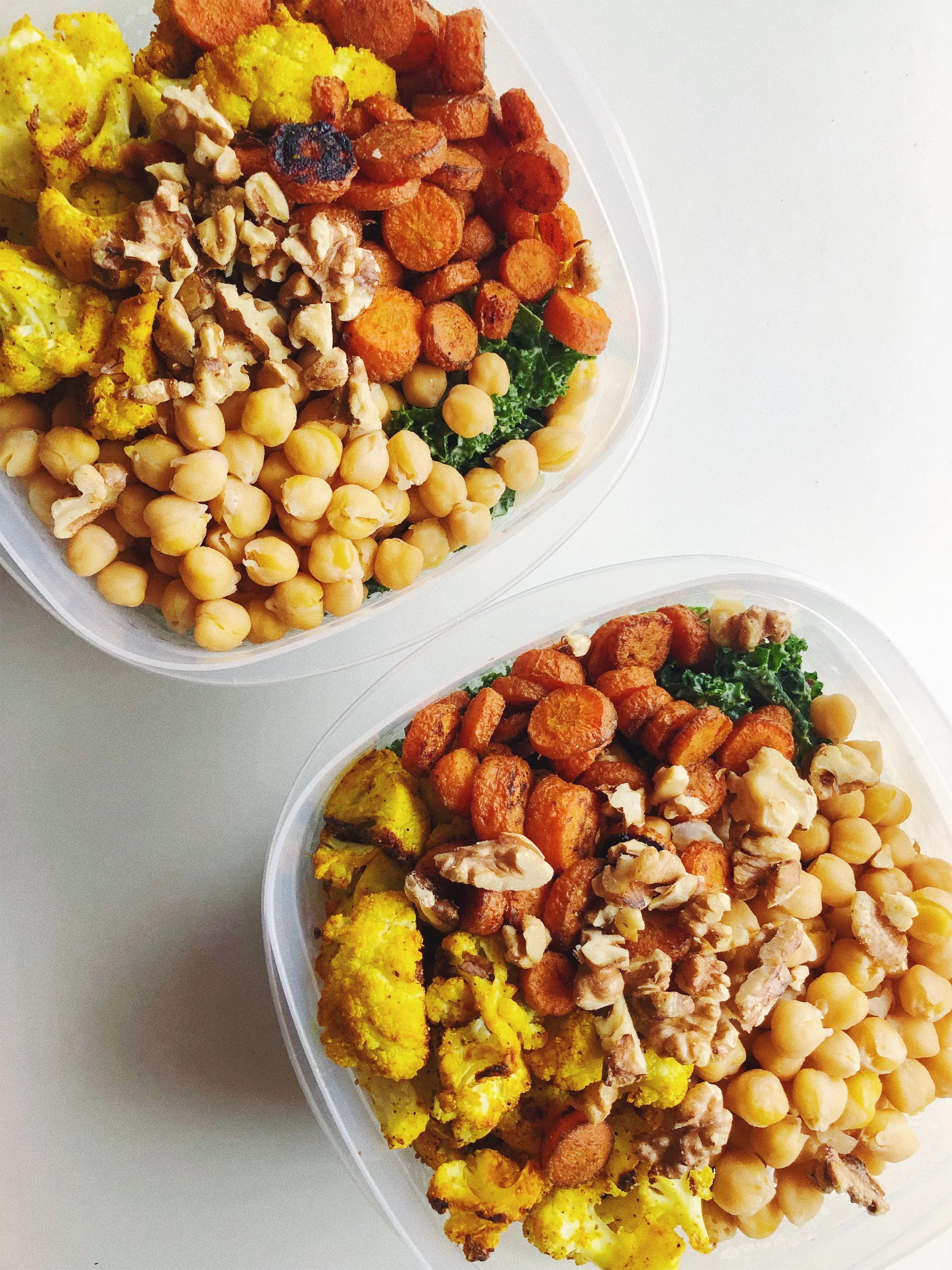Weight loss is a multi-BILLION dollar industry. It seems that most people we know are trying to lose weight, different diets are common topics of conversation and it’s a running joke that everyone’s New Year’s Resolution to hit the gym and eat better fizzles out by February.
This craze isn’t unwarranted. As of 2016, 39.8% of us were considered obese - about 93 million Americans (1). If we add into that number those that are overweight (but not clinically obese), the number becomes even higher. If we continue on the health trajectory that we’re currently on, over 95% of Americans will be overweight or obese in just two decades! (2).
There’s much debate over what kind of diet is best for weight loss - low-carb, keto, high-carb low-fat, vegan, etc. This post will not be discussing different diets as they relate to weight loss. Everyone knows that food is of the utmost importance when it comes to maintaining health, but everybody is different and one person’s style of eating is not necessarily the best for someone else. In a nut shell, eating real, whole, un-processed foods is going to be your best bet for maintaining a healthy weight (but this will look slightly different for everyone).
I want to to talk about a few things that I believe are majorly overlooked when it comes to losing weight. The first thing I’m going to be diving into today is toxicity.
What do I mean by toxicity? Our liver has the very important job of filtering any toxins that come into our body - that is, substances that are not found in nature and that our body can’t use for energy or for nurturing cells or repairing tissue.
Our modern environment is LOADED with toxins and we encounter them in ways we don’t even realize. Environmental pollution from cars and planes is everywhere, especially in more urban areas.
Our household products contain tons of chemicals that are dangerous to us - including chemical cleaners, laundry detergent, dryer sheets, etc. The chemicals in laundry linger on our clothes, which touch our skin all day, meaning we’re constantly being physically exposed to chemicals.
The personal care product industry is a nightmare. This includes shampoo, body wash, lotion, deodorant, hair products and make up products. These products all contain tons of toxic chemicals and “fragrance” that are linked to asthma, cancer, and infertility. Over the past two decades, the European Union has banned 1,400 chemicals from personal care products. The US has only banned 30 (3). Our skin is our largest organ and what we apply topically ends up inside of us.
Plastic is everywhere and contains a compound known as BPA, which you’ve probably heard of. BPA is an endocrine disrupter, meaning it interferes with your body’s normal hormone production. We store our food in plastic, most of our household and personal care products come in plastic, our kids play with plastics toys… Just take a look around your home and notice how much plastic there is!
And then there’s our food. Most of the food that’s accessible and affordable is processed “food-like items”. There are tons of preservatives, artificial colors, artificial flavors, gums, pesticides, etc. that make their way into our food supply. These are not ingredients normally found in nature and our body has to filter them out.
So when you think about all of these products that you encounter everyday, multiple times a day - your body has a big job to do. Your liver is working overtime to keep you safe and healthy and frankly, for a lot of us, it can’t keep up. Throw in drinking alcohol regularly and your liver is downright dog-tired.
So what happens when the liver is overburdened? It needs to divert some of the toxins to a safe holding place until it has enough energy to properly filter and excrete them. Know where that safe holding place is? Fat cells.
Fat cells can act as a holding chamber - a place where toxins can hang out and not cause any immediate damage in the body. They increase in size as more and more toxins are stored there.
So when you start to gain weight, one of the things that could be happening is that your body is trying to protect you from a toxic load that your liver can’t handle.
When the toxins just keep coming in, your body never really has a chance to get to those extra toxins stored in fat cells - so the cycle continues and you might continue to gain weight.
Losing this kind of weight can be difficult because your body doesn’t WANT to release those toxins back into your body because there’s a potential they can damage your cells. It’s hard to get them to budge! But it is possible.
Another thing that’s important to mention is that many of these chemicals and toxins interfere with regular hormone activity. Hormones dictate most of what’s happening in our body, including our weight and hunger/satiety signals. I won’t go into all the nitty-gritty details here, but making sure your hormones are happy and balanced is crucial for weight maintenance, no matter your age.
So what can you do to reduce your toxic load?
Just say no to conventional household cleaners and opt for more natural options.
Look at your food first. Start reading ingredient labels if you’re not already accustomed to it. If there’s an ingredient that you can’t identify, it’s best to pass. Opt for fruits and vegetables, good quality animal products, beans, legumes and whole grains. There are better options hitting our shelves, but most of what’s out there is still full of artificial ingredients and preservatives that our body can’t use.
Opt for organic. Organic foods don’t use toxic chemical pesticides and are therefore easier on your liver. Prioritize organic animal products (this means that the animals get organic feed free of pesticides - and you are what you eat, eats). The Dirty Dozen and Clean 15 List can help you prioritize which fruits and veggies to buy organic - awesome for if you’re on a budget. I use this list as my guide all the time.
Drink less alcohol. I’m not saying you have to never drink again - but be mindful of how much you’re consuming. Your liver needs to process alcohol and in combination with all of the other things I’ve listed, it might be too much for your body to process. Clean up the other areas of your life and it shouldn’t be a big deal to enjoy a drink a few times a week.
Clean house. Swap out household cleaners for more natural products. Vinegar diluted with water (add some essential oil drops if you want) makes an excellent, inexpensive all-purpose cleaner. Baking soda is great for scrubbing sinks, toilets and tubs. Opt for natural, fragrance-free laundry detergents (or just use a mix of borax, baking soda and Dr. Bronner’s like me) and skip the dryer sheets all together. You could use wool balls with essential oils in place of the dryer sheets if you want.
Use less plastic. Store food in glass tupperware or mason jars. Invest in reusable bags like Stasher (which will replace those sandwich-sized bags you use) and use reusable cloth produce bags instead of plastic when buying produce. Buy food in glass when you can. This is also great for the environment!
Pay attention to personal care. This is the hardest category FOR SURE. It’s hard to find good, clean products that actually work. For makeup and skincare, Beautycounter is really effective and is totally on par with other higher end skincare/makeup products. Whole Foods is a really good resource since they ban certain ingredients in the products they carry, so the pool you’re choosing from is already several steps above conventional products. For things like shampoo, conditioner, body wash and body lotion, these are some of my favorite brands: Acure, Avalon Organics, Everyone for Everybody and Alaffia.
It might seem overwhelming at first, but start small. Just swap out one product. As you run out of things, replace them with a cleaner alternative. It’s taken me years to get to where I am now.
I recommend that everyone become more aware of their toxic load and where toxins are hiding in their food and products. It’s going to be crucial for our long term health and wellness. If weight loss is your goal, take an investigative look into where these toxins show up in your life and take some of that toxic load off your body. Combined with a whole-foods diet and movement, this will help support your weight loss now and your health and longevity for a long time to come.
Full transparency: this blog post contains affiliate links. If you use them, I might be rewarded a commission of the sale (at no extra cost for you). Please note that I only recommend brands that I personally use and love and I always have my readers' best interest at heart.

























